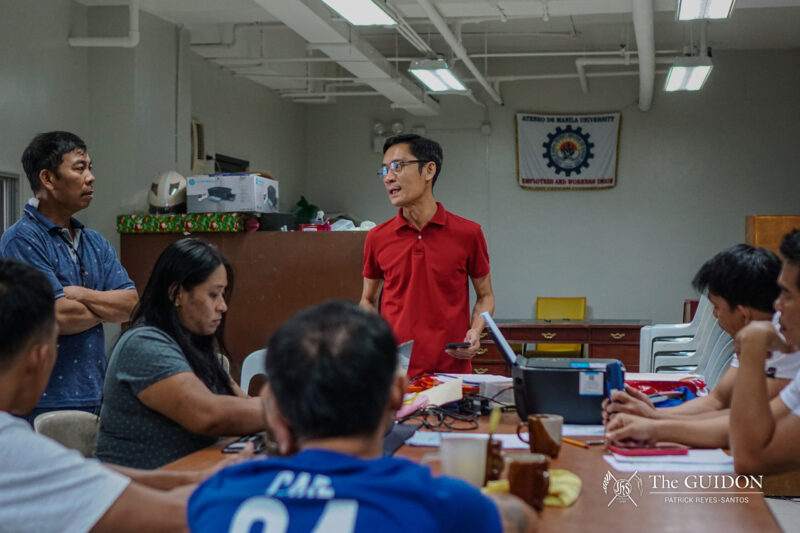THIS YEAR, the Sanggunian plans to save P300,000 to P500,000 in its use of the Student Activities Fund (SAF) through a stricter budget proposal process aimed at addressing increasing expenses.
Around P840,000 is allocated to the student council from the SAF this semester. The fund is sourced from the fees paid by all Loyola Schools students.
Savings will either be returned to the SAF or will be given to the scholars’ fund.
“The reason for this strictness is to really be more efficient when it comes to spending the Student Activities Fund,” said Sanggunian President Drew Copuyoc.
“Every year, Sanggu units are getting bigger in terms of size. We’re implementing bigger and better projects. With this, we’re spending more and more,” he explained.
New mentality
Copuyoc said, “This year, we want to institutionalize the mentality that great projects don’t necessarily need a lot of budget.”
While Copuyoc stressed practicality in project planning, Sanggunian Finance Officer Steph Gumaru emphasized being concrete and certain in budget setting.
“[The prevailing mentality is] ‘let’s bloat the budget proposal first since we’re not yet sure [about what we need],’” Gumaru said. “But we want to remove that mindset. For us, we prefer something that’s already sure. [They should] just propose what they really need.”
According to the Sanggunian’s operational budget proposal, 12 subcommittees share in the total amount allocated to the student council, with the Department for Student Leadership Development (DSLD) getting the majority with a budget of more than P390,000.
Among the four school boards, the School of Science and Engineering is allocated the most with P109,000.
The Schools of Management, Social Sciences, and Humanities are each given budgets of P81,000, P52,000 and P22,000, respectively.
Gumaru clarified, however, that the entire fund is not expected to be used, adding that the Sanggunian is expecting significant savings from its allocation this year.
Excess funds
In 2008, former Sanggunian president Omi Castañar noted that there had been a surplus in the funds allocated to the Sanggunian in preceding years. He called for an evaluation of the fund’s allocation and the transparency of pertinent processes by making its use known to the student body.
“Failing to maximize the use of the fund is unfair for the students who pay for these funds and expect services that would aid in their formation,” he said.
The allocation of excess funds is divided between scholars and the SAF.
Last year, P200,000 of the student council’s savings was given to the scholars, according to Gumaru. The decision on where to return the excess funds, and how much of it, is determined through the student council’s deliberations.
Fewer budget hearings
Only four budget hearings—set in June, August, October and December—are scheduled this year, compared to last school year’s monthly ones. Gumaru explained that this set-up is being implemented to encourage officers to plan ahead and submit their budget proposals in time for the hearings, instead of being accustomed to asking for funds only when the need arises.
Copuyoc said, though, that the disadvantage of having fewer budget hearings is the unavailability of funds for certain emergency situations, such as relief operations and rushed projects like producing the Trike Fare Matrix.
“It’s more difficult to get immediate approval now [for the release of funds] from the [Central Board]. We will have to wait for the next scheduled budget proposal to get approval, so we’re not sure whether or not we’ll get reimbursed for these type of activities,” he said.
In such cases, however, Gumaru said emergency budget hearings would be held.
Stringent measures
Before proposing their projects, officers are urged to research well and plan their projects ahead of time.
“Don’t just tell me, ‘I need my budget for materials,’” Gumaru said. “I want [them] itemized.”
Officers are given a week before the budget hearing to consult their constituents regarding their needs.
Gumaru also raised the possibility of tapping sponsors to fund projects.
“I always tell [the officers that] they have to be resourceful. You look for sponsors. You have networks. We don’t have to spend on everything.”
With reports from Gett P. Baladad






